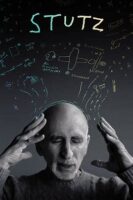Many people are talking about the new movie by Jonah Hill, “Stutz,” about his psychotherapist Phil Stutz. I thought I would share some of my thoughts. I am always heartened by a new public presentation about psychotherapy and mental illness. From Dr. Melfi, the psychiatrist, in the “Sopranos”; Billy Crystal in “Analyze This”; and Robin Williams’ Sean Maguire in “Good Will Hunting,” each depiction gives some insight into the therapeutic process and affirms that there are many ways of doing psychotherapy. Each depiction also helps destigmatize mental illness.
What I like best about Hill’s movie is the depiction of the relationship he and his therapist share. Freud said that psychoanalysis is a cure of love, and that (although not depicting an analysis) is first and foremost what “Stutz” reveals. While there is a lot of focus on the “tools” that Phil Stutz offers, all are given in the context of this loving relationship. Throughout our development, from infancy to old age, we grow through relationship. Relationships are the crucible in which change occurs. This is the underpinning of psychotherapy, although some modalities emphasize it more and some less. As Mr. Hill’s movie shows, that change process, and the requisite vulnerability that that takes, is a mutual process. Both patient and therapist are vulnerable and change in the process.
What I am not so drawn to in the movie is Stutz’s tools or his sense of expertise. Yes, many of the tools, not unfamiliar in various psychotherapeutic approaches, are helpful. It is important to focus on one’s health through exercise, proper eating, sleep. It is important to integrate and accept aspects of oneself previously detested, unaccepted. I don’t like the fact that his tools are prepackaged, one-size-fits-all. It is fine, but rarely effective, to tell a very depressed person that it would be good to exercise more or be more social. In my experience, some depressed people lack direction as Stutz asserts. However, many depressed people come in having been incredibly focused throughout their lives. The process of psychotherapy, as I understand it, takes time to figure out what is going on and what is needed for change. Sometimes a mental breakdown is the psyche and body demanding slowing down. There is little emphasis in the approach Stutz takes on the tool of understanding. On the tool of feeling accompanied. Nor on the sense of time that it takes to truly heal and change.
I also favor over expertise the experience of being able to tolerate the unknown with someone. I have a lot of years of education, training, and practice but I don’t think these make me an expert – certainly not an expert on the stranger who walks into my office. I don’t believe that I am more knowledgeable or can give better advice than the next person. I think I am curious, a good listener, and someone able to offer an appreciation for the difficulty of living in the unknown. These days, with an ongoing pandemic, constant degradation of the planet, widespread injustices, there are many challenges to live in the unknown. I favor the Socratic approach: a deep appreciation of what I don’t know is necessary in order to engage in a process that leads to knowing. My patients and I think and feel together. Of course, along the way I might offer some advice, suggest meditation or an exercise. Fundamentally, my job is to help companion patients towards their own discovery of what is going on and what is needed. To accompany and to witness. In my experience these are powerful tools for transformation.
Stutz says that from the first session, having offered some of these tools, he wants people leaving his office to have a sense of hope that there can be change. I want patients leaving my office for the first time to leave with the sense that they have met someone who cares and can accompany them on their journey. I want them to leave not feeling so alone and, therefore, hopeful.
I am very glad that Jonah Hill felt so helped by this therapeutic experience. There is no one-size-fits-all therapy. Mr. Hill found the right therapist for him. And I’m grateful for his movie which encourages conversation about psychotherapy, healing, mental illness and mental health.


Comments are closed.